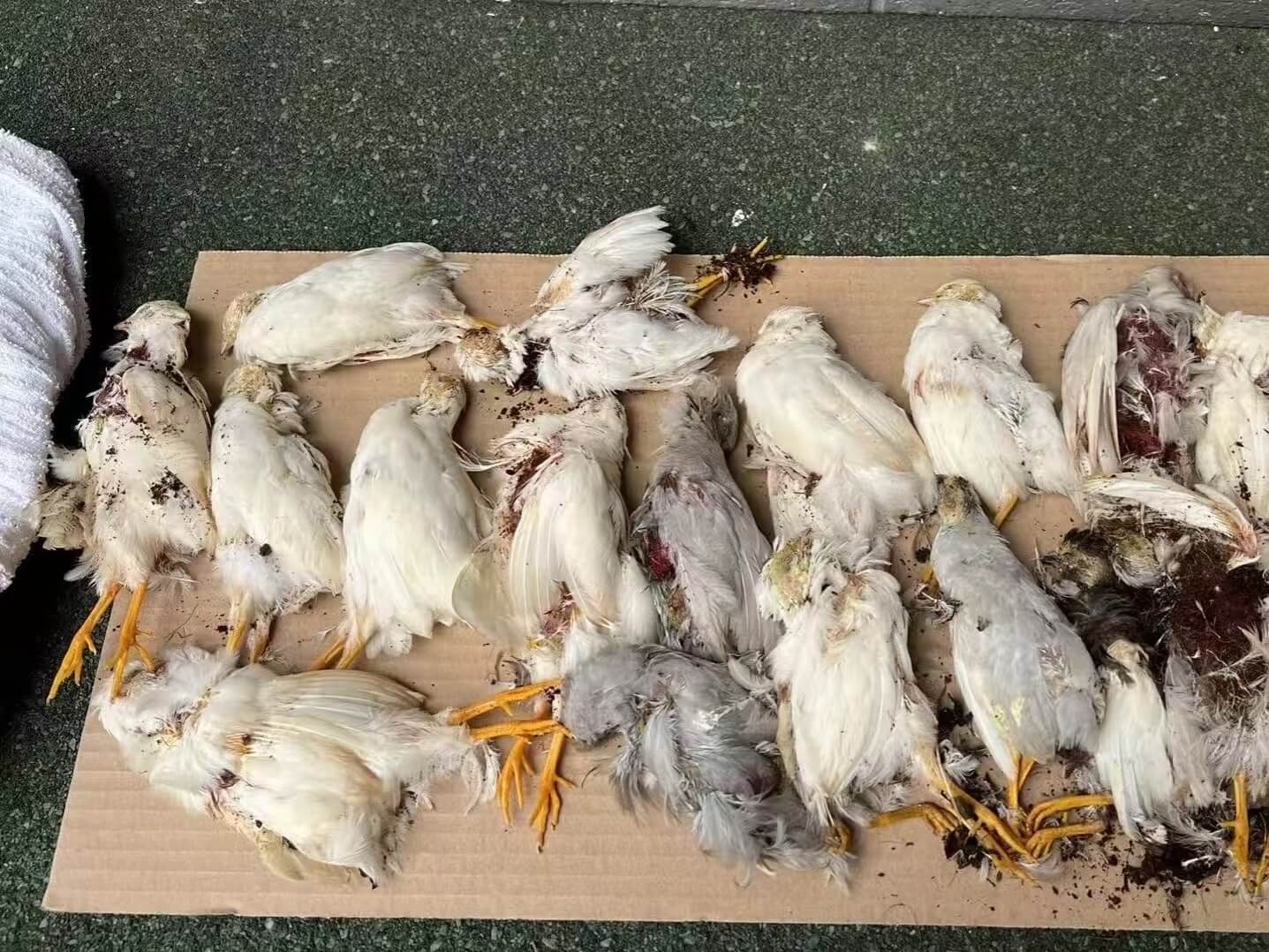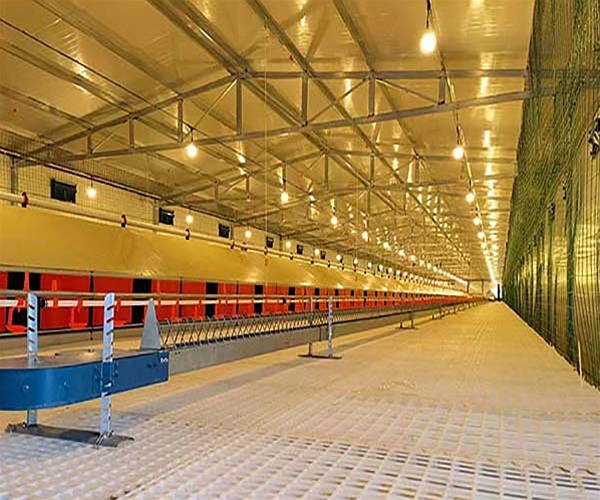Chicken health is very important.When a poultry farm detects an outbreak of infectious disease in the flock, it’s crucial to take immediate action to prevent the spread of the disease and minimize losses. In addition, regular preventive measures are essential for ensuring the health of the farm and increasing production efficiency. This article will explain how to manage and prevent infectious diseases in poultry farms.
1. Chicken Health —— How to Handle Infectious Diseases in Chickens
Once symptoms of an infectious disease are found in the flock, immediate measures should be taken. Here are some key steps:
a. Isolate Sick Chickens
- Immediate Isolation: Sick chickens should be quickly isolated in a separate area to prevent contact with healthy chickens. Make sure the sick chickens receive professional care, and monitor their health closely.
- Mark Sick Chickens: Use noticeable markers (such as different colored leg bands or tags) to distinguish between healthy and sick chickens, avoiding confusion.
b. Diagnosis and Treatment
- Professional Diagnosis: Contact a veterinarian immediately for diagnosis. They will determine the cause of the disease, whether it’s viral, bacterial, or parasitic. Accurate diagnosis is key to effective treatment.
- Use Correct Medication: Follow the veterinarian’s guidance to use the appropriate antibiotics, antivirals, or vaccines. Avoid self-medication to ensure treatment effectiveness and prevent antibiotic resistance.
c. Cleaning and Disinfection
- Thorough Disinfection of the Coop: The poultry house is a primary source of disease transmission, so all infected areas must be thoroughly cleaned and disinfected. Pay particular attention to feeders, water containers, and equipment.
- Regular Equipment Disinfection: Regularly disinfect all equipment in the poultry house, including feeding troughs, water containers, and air circulation systems, to prevent the spread of pathogens.
d. Isolation Period and Health Checkups
- Isolation Period: Sick chickens should continue to be treated in isolation. Only after symptoms are completely gone and the veterinarian confirms they are no longer infectious, should they be allowed to rejoin the rest of the flock.
- Regular Health Checkups: Conduct regular health checkups on the flock to detect other potential diseases early on.
e. Reporting and Record Keeping
- Report on Time: For major infectious diseases like avian influenza or fowl cholera, report to the relevant authorities so that necessary control measures can be taken.
- Keep Detailed Records: Document all details of each disease case, including the treatment process, medication used, and disinfection efforts. This information will be helpful for future reference and to prevent recurrence.
2. Chicken Health ——How to Prevent Infectious Diseases in Chickens
Prevention is always better than treatment. Effective preventive measures not only reduce the risk of disease but also lower the mortality rate and increase production efficiency. Here are some key preventive measures:
a. Strengthen Immune Management
- Regular Vaccination: Ensure regular vaccination based on the type of chickens and common diseases (such as avian flu or Newcastle disease). Vaccines are an effective way to boost immunity and prevent disease.
- Vaccination Records: Keep accurate records of vaccinations for each batch of chickens, ensuring they are vaccinated on time and in the correct dosage.
b. Strict Biosecurity Management
- Prevent External Infection Sources: Strictly control the entry of people, vehicles, and equipment into the poultry farm. People entering should wear disinfected clothing to meet biosecurity standards.
- Quarantine New Chickens: Conduct a health check and observe new chickens for at least 14 days in quarantine to avoid introducing external pathogens.
c. Improve the Poultry House Environment
- Good Ventilation and Temperature Control: Proper ventilation and temperature control are essential for preventing diseases. Ensure adequate airflow and maintain a comfortable temperature to reduce the build-up of harmful microbes.
- Regular Cleaning: Keep the poultry house clean by promptly removing chicken manure and waste, minimizing the risk of bacterial growth.
d. Health Monitoring and Management
- Regular Health Checks: Regularly check the health of the flock to identify abnormalities and take corrective action if needed.
- Environmental Monitoring: Monitor factors like humidity, temperature, and air quality to ensure the chickens are in an optimal growing environment.
e. Proper Feeding Management
- Balanced Feed Formulation: Ensure the chickens receive a balanced diet that boosts their immunity. Proper nutrition is essential for maintaining their health.
- Water Quality Management: Ensure the water supply is clean and free from contaminants to avoid disease spread through drinking water.
f. Regular Disinfection and Pest Control
- Regular Disinfection: Use professional disinfectants to clean the poultry house and surrounding areas regularly, ensuring all equipment and areas are effectively disinfected.
- Pest and Rodent Control: Implement pest control measures to reduce the risk of disease transmission from insects and rodents.
Conclusion
When dealing with infectious diseases in poultry, isolating sick chickens, professional treatment, and environmental disinfection are the fundamental steps. Preventive measures, including vaccination, strict biosecurity, health monitoring, and proper environmental management, play a vital role in ensuring the health of the flock.
By strengthening these measures, you can not only reduce the incidence of diseases but also greatly improve production efficiency, leading to higher economic returns for poultry farmers. It’s essential for farmers to manage their farms scientifically to protect chicken health and increase productivity.


